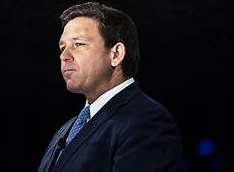The Clinton-era treasury secretary on why capitalist democracy must change if it is to survive.
Larry Summers, 68, is not exactly young, but in the ever-extended lifespan of American political figures, he might still have 15 years of relevance ahead. After all, Joe Biden, at 80, is still active in public life. Summers’ career of public service—often viewed with some cynicism as political power—is now in a phase of relative quiet. Having served as Bill Clinton’s treasury secretary at the end of the 1990s and as director of Barack Obama’s National Economic Council a decade later, Summers has not found a similar role in Biden’s administration. Instead, he has become a notable critic of its economic policies while maintaining his professorship at Harvard.
Summers’ rise in the academic and economic world was swift. By age 36, he became the chief economist of the World Bank, a position he secured in 1991. This came just eight years after he became one of the youngest tenured professors in Harvard’s history, having begun his studies at MIT at just 16. Summers comes from a family steeped in economic intellect: his father’s brother, Paul Samuelson, was the “father of modern economics,” and his mother’s brother, Kenneth Arrow, also won a Nobel Prize in economics. Though Summers himself has never won a Nobel, unlike his contemporary Paul Krugman, he has long been recognized for his sharp and often abrasive intellect. “Larry’s impressed by no one and never was,” a fellow economist once remarked to The New Yorker.
Summers’ perspective on economics has evolved over time, particularly when reflecting on the growing inequality that has defined the modern era. The economic environment Summers entered half a century ago was far more equal than it is today, a shift that has profoundly altered his worldview. While Summers asserts that his core values haven’t changed, he acknowledges that the growing inequality in the market demands a shift in judgment about government intervention. He expressed this sentiment during an interview in February, stating, “The market is generating more natural inequality, so even if your values don’t change, your judgment about the appropriate size of government has to go up. The level of redistribution that is appropriate is greater.”
This shift in Summers’ thinking speaks to a larger trend, as figures once firmly entrenched in capitalist democracy now recognize the need for reform. Over the years, he has become increasingly vocal about the necessity for government intervention to address the social and economic challenges presented by wealth inequality. His move leftward reflects a broader acknowledgment that the capitalist framework, as it currently exists, may not be sustainable if it continues to exacerbate inequality. The system, Summers believes, must change if it is to survive, with greater redistribution of wealth and more government regulation necessary to maintain social and economic stability.
Though Summers’ evolution may seem surprising to some, it mirrors a larger shift in the economic discourse, especially as growing inequality threatens social cohesion and undermines trust in democratic institutions. His critique of the current economic model and his calls for greater government involvement reflect a growing recognition among influential figures that the status quo is untenable. As Summers himself puts it, even if one’s values remain constant, the practical judgment about how much government intervention is necessary must increase as the gap between the rich and the poor continues to widen.
In the coming years, Summers’ thoughts on these matters will likely play a significant role in shaping policy discussions. His reflections on inequality and the role of government in rectifying it suggest that his future relevance may lie not just in academic or advisory positions, but in continuing to influence the broader public discourse on economic reform.

